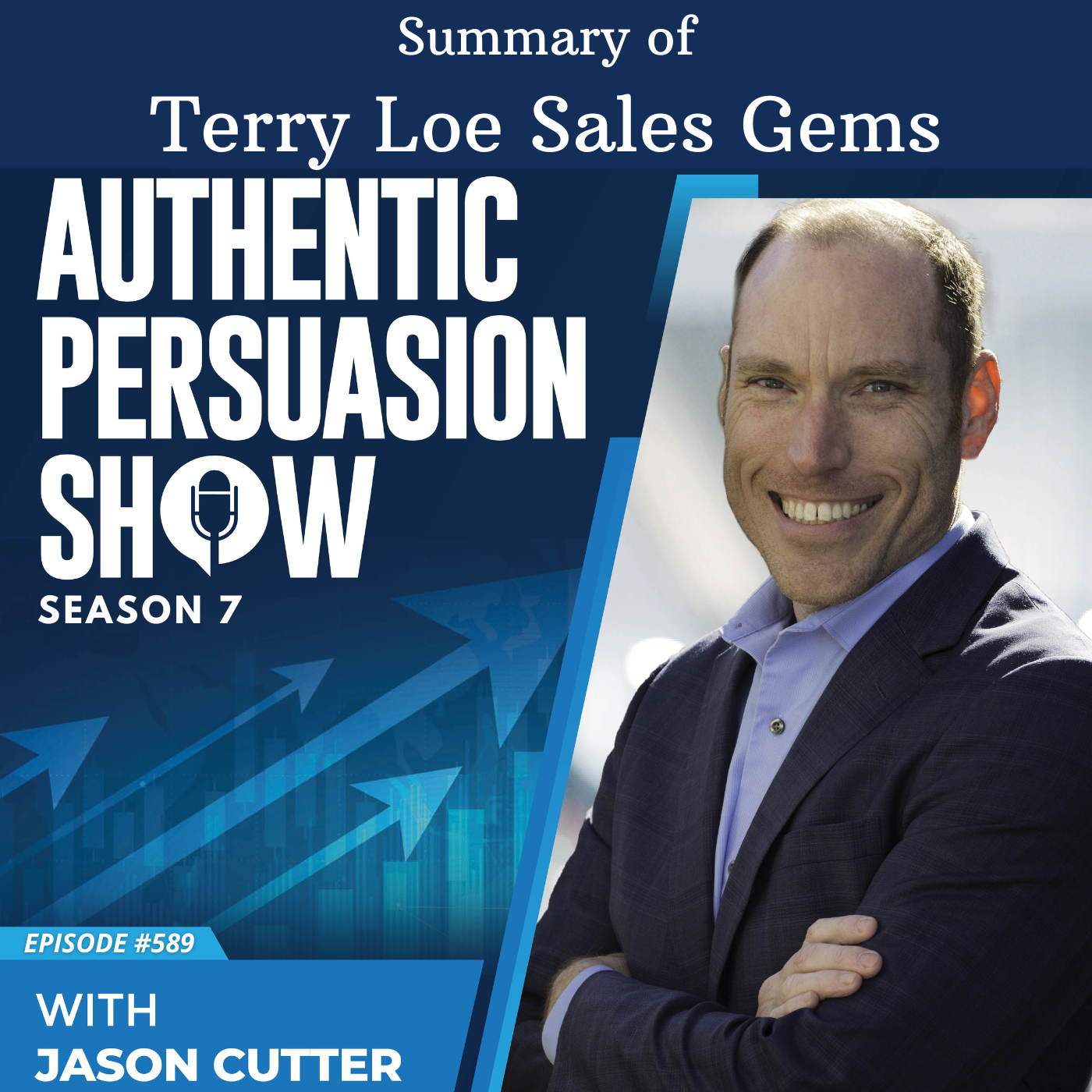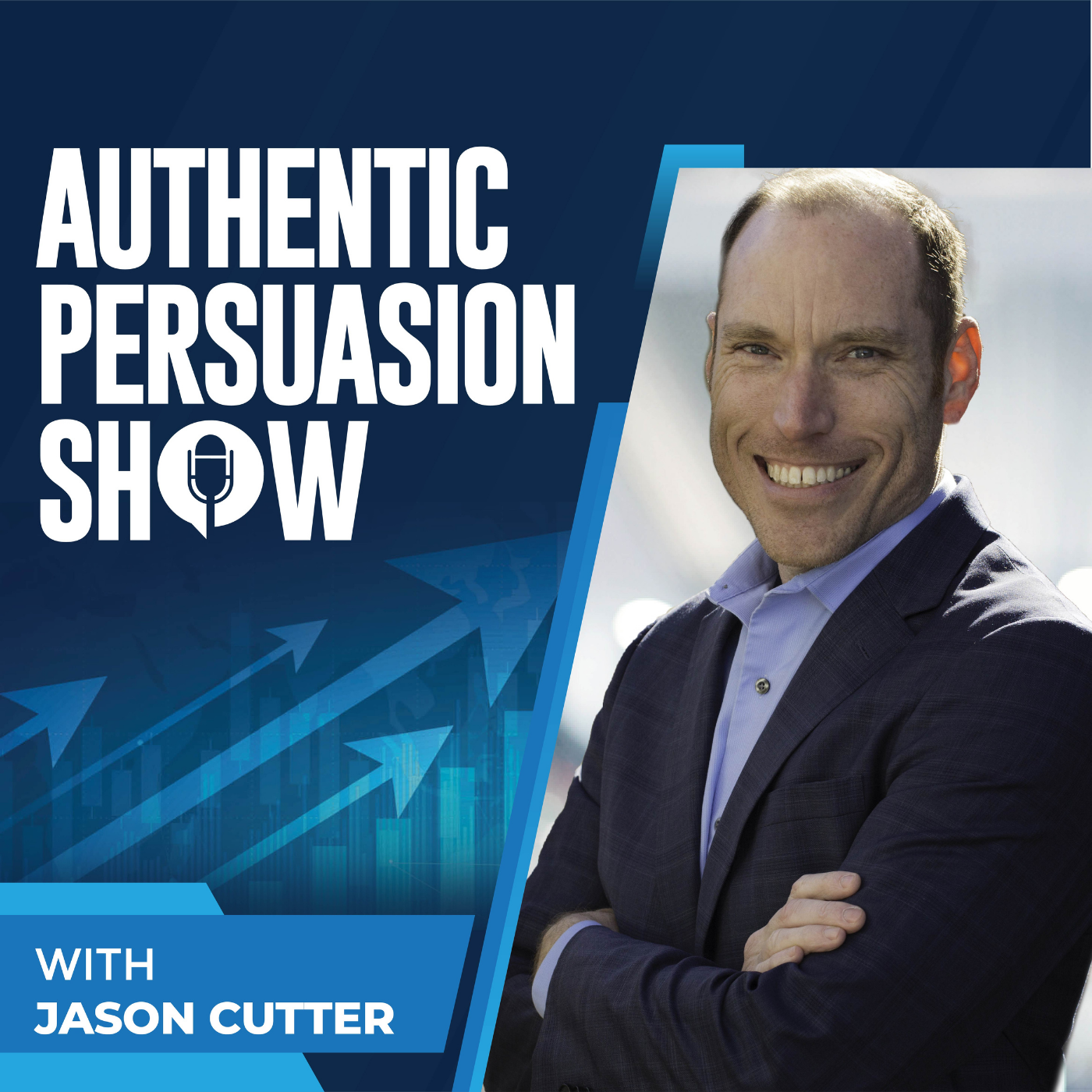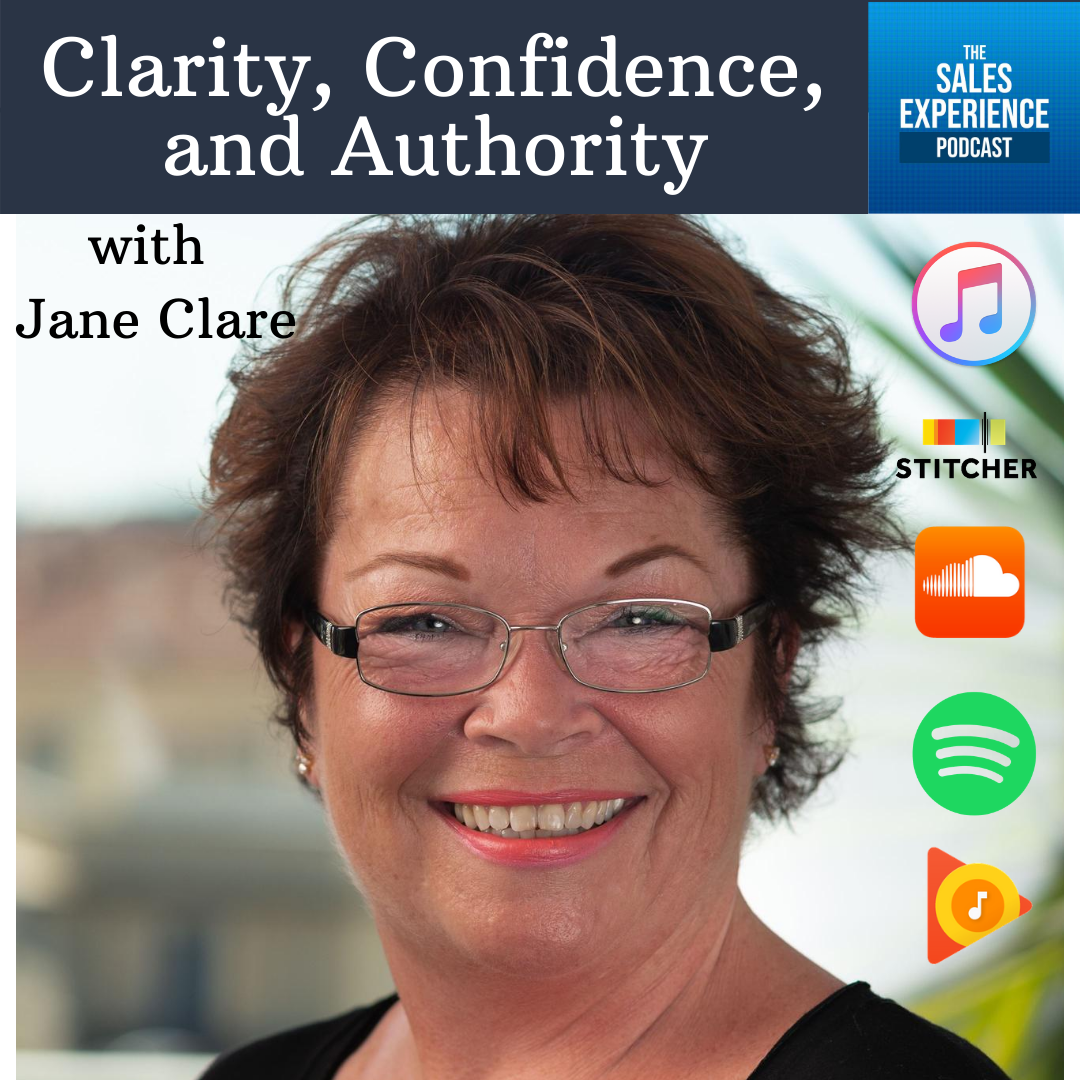[00:00:00] Speaker A: Welcome to the authentic Persuasion show. On this episode I want to replay part of a previous show. Maybe you heard the original full length episode and this could be a great refresher and reminder. Or maybe this is your first time hearing this content and the timing could be just right to help you leverage authentic persuasion today in your role no matter what. Here's to your success.
This is the authentic persuasion show.
[00:00:25] Speaker B: It. You got to make sure you follow this process and the authentic persuasion pathway. Again, if you want to see a visual of this, if you want to get an idea of what this looks like, I'm doing this just on video here, not doing a screen share. I don't want to do any slides on this for now, but if you want to see what the authentic persuasion pathway looks like and moving someone from the center of their comfort zone out of the hole that they have the doorway, how do you move someone out? We started with rapport, then we went to empathy, then we covered trust a couple of weeks ago. And then now we're going to talk about hope. If you want that visual, if you want to see that contextual model so you can visualize it and see what it is that you should be doing in your conversations, every conversation that you have with somebody, email me.
[email protected] happy to send that to you so you can check that out and some information that I have to help you succeed in these conversations. Now, one of the big things before I jump into hope is that I had mentioned last week I was going to cover two big closes, two important closes. Really fundamentally for me, the only two closes that matter. I know there's the trial close and there's this close and there's that close and there's all these other ones that you can use. There's really only two, in my opinion, that matter the most and that are necessary to focus on when we're talking about the authentic persuasion pathway and going down this route.
And I know I was going to talk about them this week because I ran out of time last week. I'm actually going to push that to next week. So make sure to tune in session 13. I'll be back live. We'll talk about those two closes that you should use. And trust me, they are valuable, they are important and they are simple, which is the key to all this. And we'll talk about how that is. And the reason why I want to push that to next week is because I think it's important to talk about this hope step before we get into those closes. A lot of times what happens is people want to get into the closes, they want to use this close or that close. They're thinking too much about that part.
Whereas in my experience, what happens is if you do the phases of this authentic persuasion pathway, if you do the rapport, the empathy, the trust, now the hope, and then that last step, which we're going to talk about in a few weeks, which is actually the hardest one for most people who are not achieving what they want in sales. But when you do these parts right, especially these first four, what happens is all the standard closes, in my opinion, become much easier or potentially unnecessary because you have done your job as a professional. You don't need to close somebody, right? And again, if we think about the doctor examples that I've used in the past and that analogy is that does the doctor really have to close you on getting done what you need to get done? Sure they're going to mention it, but do they really need to close you? Right. Hey, if I can show you how to fix your broken leg, is this something you would be interested in doing? They don't need to do that because they see what the pain is, they're going to diagnose, they're going to prescribe and then they're going to assume and move forward. And so that's what we're going to talk about. That's why I think when you follow this and what I've seen is that you don't even need to use any heavy handed closes, any strategies or tactics. It just becomes a different process where you are acting like a professional. And with the speaking and training I do, persuading like a professional, which is the big key that I want you to focus on. So let's dive into hope. So again, we got our authentic persuasion pathway. We're moving around this comfort zone circle of somebody and we're trying to help them break free of their comfort zone to make a change in their life in some way. And again, I'm going to keep reminding, I'm going to keep saying this. Whether you've tuned in now, this is your first time checking out one of these sessions, if so, welcome, or you've checked out all the ones up to this point, the previous eleven and you are on this path with me together. The key is that we've got this person who wants to buy and they're in their comfort zone. And again, whether it's a consumer or it's an employee at a company or an owner of a company, b to c, b to b, doesn't matter. H to h, human to human is what we're focusing on. That's why these things work universally, in effect, with anybody you're talking to, because you're fundamentally talking to another human. Doesn't matter what it's about, doesn't matter what their position is or what you're dealing with or who they are, what they're dealing with. They're a human, which means they have certain concerns, they have fears, things I've talked about in the first eleven weeks. And they have this place where they are stuck in their comfort zone. Now why can I say that? Why do I know that for sure? Because if they weren't in their comfort zone, if they weren't stuck, then they wouldn't be afraid of change, which is what I've discussed in the past. And I know that because if they're talking to you and they need help with a considered purchase and they need a consultative salesperson to help them make the right and safest decision for them, then what that means is they haven't decided. They're still in their comfort zone and they're still worried and they're still afraid of change.
![[741] The Power of Hope in Sales](https://episodes.castos.com/salesexperiencepodcast/images/1705813/c1a-4d8w-v088r547ugq4-yb9om6.png)


